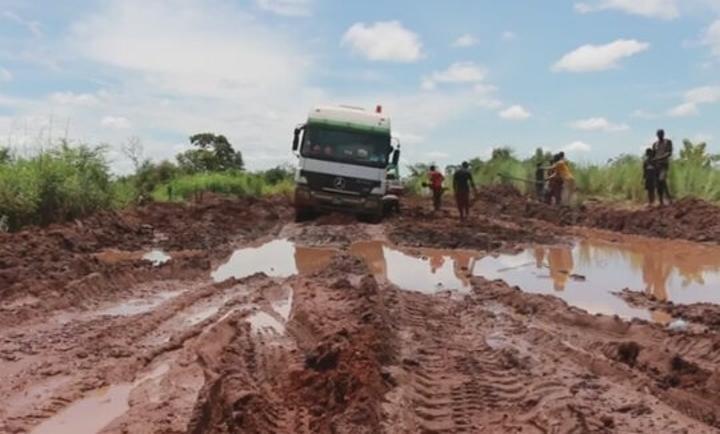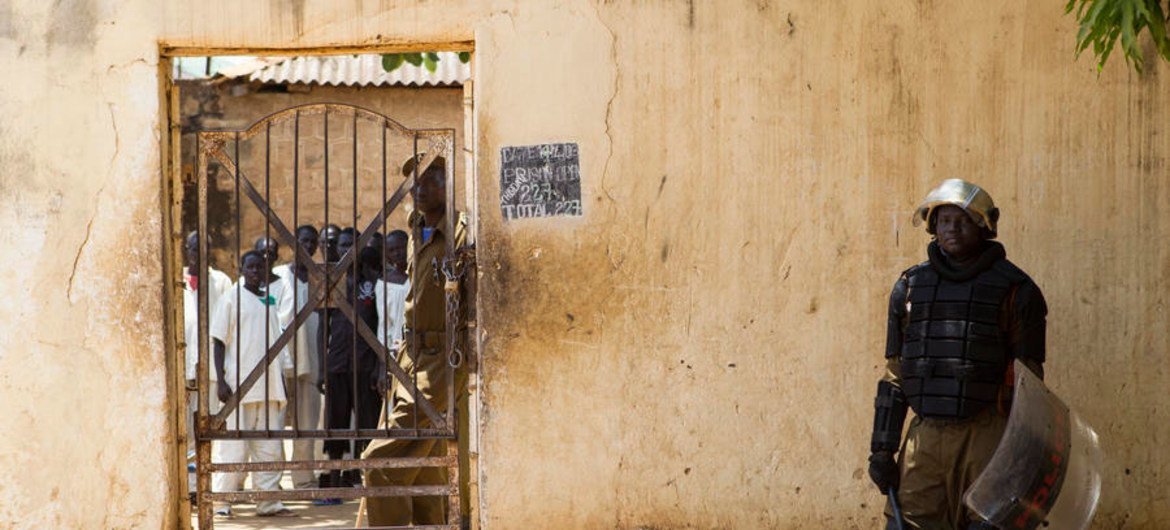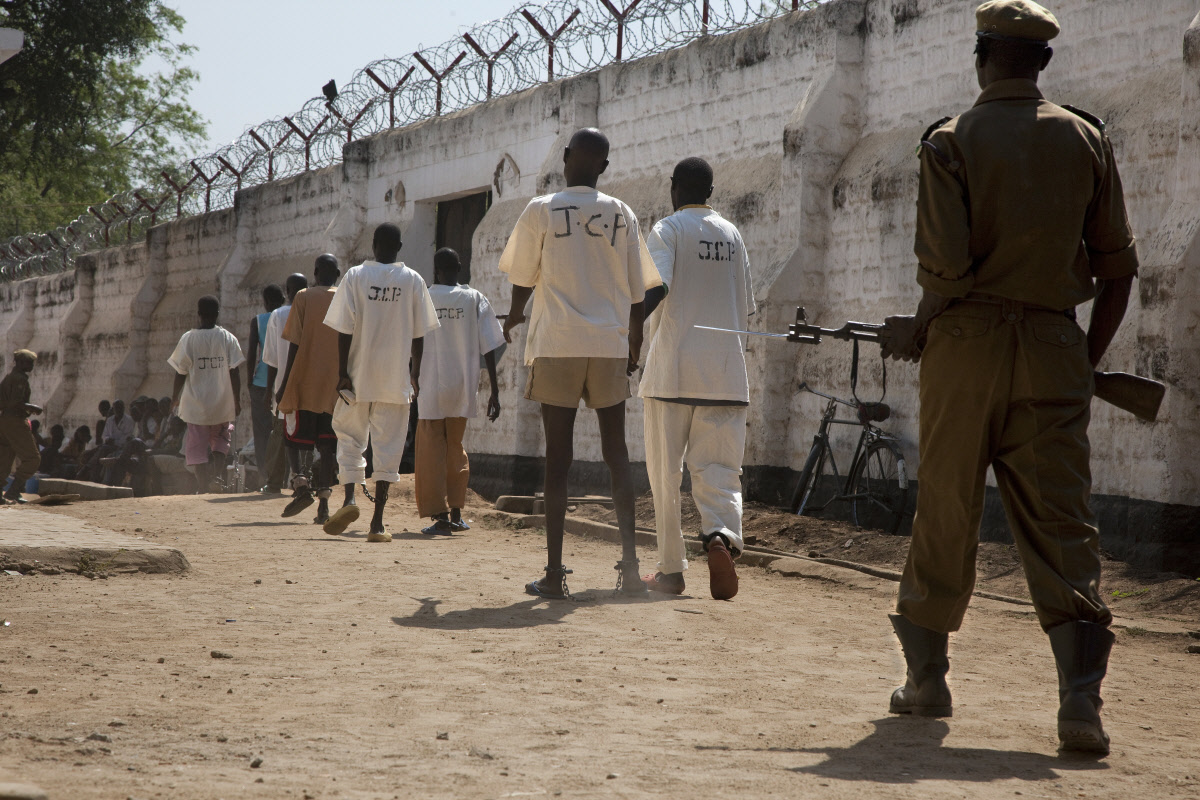South Sudan, the world’s youngest nation, presents a daunting landscape for foreign drivers, particularly those from East African Community (EAC) countries like Kenya and Uganda. Beyond the physical perils of its underdeveloped roads, foreign drivers face unclear traffic laws, arbitrary judgments, exploitative government demands, and the risk of imprisonment under questionable circumstances. This blog delves into these challenges and explores how the EAC can intervene to create a safer, fairer environment for drivers.
The Harsh Reality of South Sudan’s Roads
South Sudan’s road network is a logistical nightmare. Most roads are unpaved, narrow, and vulnerable to flooding during the rainy season (March to October). Foreign drivers, often transporting goods from EAC nations, navigate treacherous conditions worsened by erratic local drivers, pedestrians, and livestock. The absence of traffic signals outside Juba and other major cities compounds the chaos, making accidents a constant threat. For foreign drivers, however, the physical challenges pale in comparison to the legal and bureaucratic obstacles they encounter.
The Roadblocks Begin at the Border from the moment foreign-registered trucks or vehicles cross into South Sudan, they are met with a cocktail of suspicion and bureaucracy. Inconsistent enforcement of regulations, high fees, and long inspection delays create a bottleneck that punishes rather than welcomes cross-border commerce. Foreign drivers are frequently subjected to unexpected “compliance checks” that are often nothing more than extortion points, making an already tense environment even worse.

Unclear Traffic Laws: A Recipe for Confusion
South Sudan’s traffic laws are a patchwork of vague regulations, poorly communicated and inconsistently enforced. The lack of a comprehensive, accessible legal framework leaves drivers uncertain about rules governing speed limits, vehicle standards, or accident protocols. This ambiguity is particularly problematic for foreign drivers unfamiliar with local practices. Traffic signs are scarce, and where they exist, they are often ignored or misinterpreted due to low literacy rates among drivers and enforcers alike.
The absence of standardized regulations under the EAC’s Customs Union, which South Sudan joined in 2016, exacerbates the issue. While the Customs Union mandates harmonized road transport policies, South Sudan’s authorities frequently impose arbitrary rules that contradict regional agreements. For instance, foreign drivers report being fined for “violations” that are not clearly defined, such as “improper parking” on roads lacking designated spaces. This lack of clarity creates a system where enforcement is left to the whims of local officials, fostering an environment ripe for exploitation.
Arbitrary Judgments and Jungle Laws
When accidents or incidents escalate into legal proceedings, foreign drivers face an uphill battle. Legal representation is hard to secure, court cases are slow, and rulings are often biased in favor of local interests. Some drivers have found themselves imprisoned for months without formal charges, simply because they could not immediately meet the “compensation” demands made by aggrieved parties or officials.
South Sudan’s judicial system compounds the challenges posed by unclear traffic laws. Judgments in traffic-related cases are often arbitrary, biased against foreigners, and influenced by corruption. The term “jungle law” is frequently used by drivers to describe the lawlessness they encounter, where legal outcomes depend more on the mood of authorities than on established principles. Foreign drivers involved in minor accidents or disputes at checkpoints face unpredictable consequences, ranging from hefty fines to detention without formal charges.
The judiciary’s lack of independence means that foreign drivers rarely receive fair hearings. Local courts, under pressure from security forces or political interests, may impose harsh penalties to extort money or assert control over foreigners. A good example is a Kenyan driver by the name Mohamed Abukar Muumin aka BBC who was involved in an accident in 2021 leading to the death of 6 Sudanese citizens.
He was fined a total of USD 106,100 which up to now has not been fully paid thus being detained in South Sudan . However, later the Noah van driver resurfaced claiming to be paid USD 6000 for injuries sustained.
The recent incident involves a Tanzanian Truck driver Juma Ally Maganga, a 45-year-old who was detained in South Sudan after allegedly killing a South Sudanese soldier riding a motorcycle on February 14, 2025, in Juba, while transporting humanitarian maize aid. The deceased’s family and Juba police initially demanded over 213.09 million South Sudanese pounds (approximately TSh938 million) in compensation for funeral expenses and family support. Maganga’s family, unable to meet these demands, reported his poor health and injuries in custody, while the vehicle owner, Gabriel Kiliki, appealed for Tanzanian government intervention.
The case, managed through Tanzania’s embassy in Uganda due to the lack of an embassy in South Sudan, was heard in a customary court on March 28, 2025. Maganga was sentenced to three years in prison, with the possibility of an extended sentence if a fine is not paid within 14 days of the ruling, as reported on April 26, 2025. The lawyer representing Maganga noted that customary court penalties for unintentional manslaughter typically involve 31 cows (equivalent to $27,000 or TSh71.5 million), and an appeal to the East African Court of Justice was considered. The truck and cargo remain confiscated.
This systemic bias not only undermines justice but also discourages regional trade, as drivers fear the financial and personal risks of operating in South Sudan.

Exploitation at Checkpoints
Foreign drivers face relentless harassment at makeshift checkpoints, where they are coerced into paying bribes disguised as “tolls” or “fines” for alleged infractions. These fees, sometimes as high as $50 per station, are imposed by various groups, some in official-looking uniforms, adding to the confusion over their legitimacy. The lack of transparency in toll collection violates EAC protocols, which require regulated and communicated road charges. Drivers who resist these demands risk violence, vehicle confiscation, or detention, creating a climate of fear and financial strain.
Imprisonment and Unreasonable Demands
One of the gravest challenges is the risk of arbitrary detention. South Sudan’s transitional constitution prohibits unlawful arrests, but in practice, foreign drivers are frequently detained without clear charges, especially after traffic incidents or disputes over tolls. Facilities like the National Security Service’s “Blue House” in Juba are notorious for holding detainees, including drivers, in inhumane conditions with little access to legal counsel, medical care, or family contact. Some drivers remain imprisoned for months, facing demands for exorbitant fines or bribes to secure release.
For instance, Kenyan truck drivers have reported being extorted, robbed, or attacked, with some still languishing in detention under questionable pretexts. These cases reflect a broader pattern of impunity within South Sudan’s security and judicial systems, where foreigners are easy targets. Beyond detention, drivers face unnecessary government demands, such as excessive documentation, arbitrary taxes, and mandatory security escorts that often fail to provide genuine protection. The confusion over legitimate security personnel—some attackers wear uniforms resembling official ones—further endangers drivers.
The EAC’s Potential to Transform the Situation
As an EAC member, South Sudan is bound by regional agreements promoting free movement, trade, and cooperation. The EAC can play a pivotal role in addressing the challenges faced by foreign drivers through the following measures:
- Clarifying and Harmonizing Traffic Laws: The EAC should pressure South Sudan to adopt clear, standardized traffic regulations aligned with the Customs Union’s protocols. This includes publishing accessible guidelines on road rules, tolls, and penalties, and ensuring their consistent enforcement. Regional workshops could train South Sudanese officials and drivers to bridge gaps in understanding.
- Reforming Judicial Practices: The EAC can advocate for judicial reforms to ensure fair treatment of foreign drivers. The East African Court of Justice (EACJ) could hear cases of arbitrary detention or unfair judgments, holding South Sudan accountable. Legal aid programs, supported by the EAC, could assist detained drivers and push for their release.
- Eliminating Non-Tariff Barriers: The EAC should enforce compliance with Customs Union rules on road tolls, conducting regular audits to curb extortion at checkpoints. A regional grievance mechanism could allow drivers to report violations anonymously, deterring corrupt practices.
- Enhancing Security Cooperation: The EAC can collaborate with South Sudan to establish legitimate, accountable security escorts for drivers. Regional peacekeeping efforts, such as those mediated by IGAD, could address insecurity along key routes, ensuring safe passage.
- Fostering Dialogue: The EAC can mediate discussions between South Sudan and affected member states like Kenya and Uganda to resolve disputes and negotiate protections for drivers. Kenya’s mediation efforts, led by figures like Lazarus Sumbeiywo, could be integrated into an EAC framework for broader impact.
- **Investing in Infrastructure and Clive: The EAC can support South Sudan in developing road infrastructure and traffic management systems through technical assistance and funding, reducing physical hazards and improving regulatory frameworks.
A Path Forward
The challenges faced by foreign drivers in South Sudan—unclear traffic laws, arbitrary judgments, extortion, and unjust imprisonments—undermine regional trade and human rights. The EAC has the tools to drive change by enforcing regional agreements, advocating for judicial fairness, and fostering cooperation. Until these issues are addressed, South Sudan’s roads will remain a perilous frontier for foreign drivers, stifling economic integration and straining regional ties. The time for action is now, to ensure safety, fairness, and prosperity for those who keep the region’s trade routes alive.
Drivers are also calling upon the Ugandan government to build an Inland Container Depot together with a fuel depot at Elegu where their drivers can pick cargo from as a temporary solution since the situation in South Sudan seems not to change any time soon.



